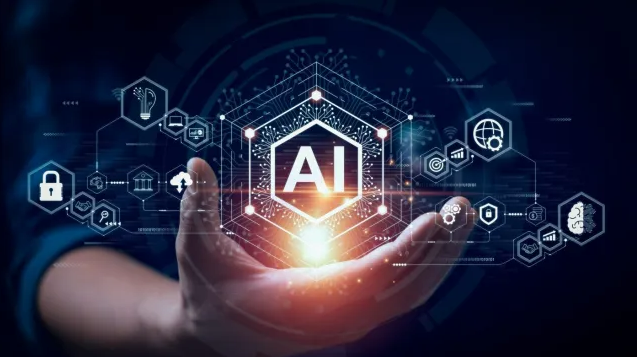
Balancing AI Innovation with Security, Ethics, and Future Challenges
- By ThreatMatrix
Artificial Intelligence (AI) is rapidly transforming industries by driving innovation, improving efficiency, and offering predictive insights. From streamlining operations to enhancing customer experiences, AI’s potential is enormous. However, with this transformative power come significant challenges that require a strategic and balanced approach.
Security Risks in AI: A Growing Concern
As AI systems handle vast amounts of sensitive and personal data, they are increasingly attractive targets for cyberattacks. Issues like data breaches, algorithmic manipulation, and unauthorized access present serious risks. Cybercriminals may exploit vulnerabilities in AI models to launch sophisticated attacks, making it essential for organizations to prioritize robust cybersecurity practices. Implementing AI-driven security measures, such as real-time threat detection and automated response systems, can help mitigate these risks. For more insights on protecting AI systems, visit Cybersecurity Best Practices.
The Complexity of Ethical AI Implementation
Beyond security, ethical considerations in AI development are increasingly critical. Bias in algorithms, lack of transparency, and questions about fairness in decision-making have sparked global debates. Ethical AI is not just about following guidelines—it’s about designing systems that respect human rights and societal values. Ensuring that AI decisions are explainable, transparent, and free from bias is key to fostering trust in AI technologies. Companies must establish clear ethical standards and frameworks to guide AI development. Explore more about ethical AI practices in this article: Understanding Ethical AI.
Future Challenges: AI’s Evolving Role in Cybersecurity and Society
As AI evolves, it will introduce new opportunities and challenges. The integration of AI into more aspects of daily life—like healthcare, finance, and governance—will require advanced strategies to address emerging risks. One future challenge is the potential for AI-powered cyberattacks, where attackers leverage AI to create highly sophisticated threats. Defending against these attacks will require the cybersecurity industry to innovate and evolve alongside AI. On the flip side, AI has the potential to revolutionize cybersecurity jobs by automating repetitive tasks and enabling security professionals to focus on complex problem-solving. This shift can lead to quicker threat identification, improved incident response, and overall better protection against evolving threats.
Making Cybersecurity Jobs Easier with AI
One of AI’s most promising contributions to cybersecurity is its ability to enhance the efficiency of security professionals. AI-driven tools can automate routine tasks like log analysis, vulnerability scanning, and patch management. By reducing manual workloads, AI allows cybersecurity experts to focus on strategic initiatives, such as threat hunting and designing advanced security protocols. Additionally, AI’s capability to analyze vast datasets in real time improves threat detection and response times, enabling faster mitigation of potential breaches. For those looking to explore the future of cybersecurity careers in the age of AI, check out AI in Cybersecurity Jobs.
Achieving Balance: Leveraging AI’s Benefits While Addressing Concerns
To fully unlock AI’s benefits, businesses need to strike a balance between innovation and risk management. By adopting best practices in cybersecurity and ethical AI implementation, organizations can harness AI’s transformative power while minimizing potential pitfalls. As AI technology advances, staying informed about both its opportunities and threats will be crucial for businesses aiming to maintain a competitive edge. Explore more strategies for balancing AI risks and rewards here: AI Risk Management.
Conclusion
The journey toward widespread AI adoption is exciting yet complex. While AI opens doors to new possibilities, it also brings challenges that must be navigated carefully. The future of AI lies in striking the right balance—leveraging its power while proactively addressing security, ethical, and societal concerns. As AI continues to evolve, our strategies must also adapt to ensure it benefits businesses, security professionals, and society responsibly.
